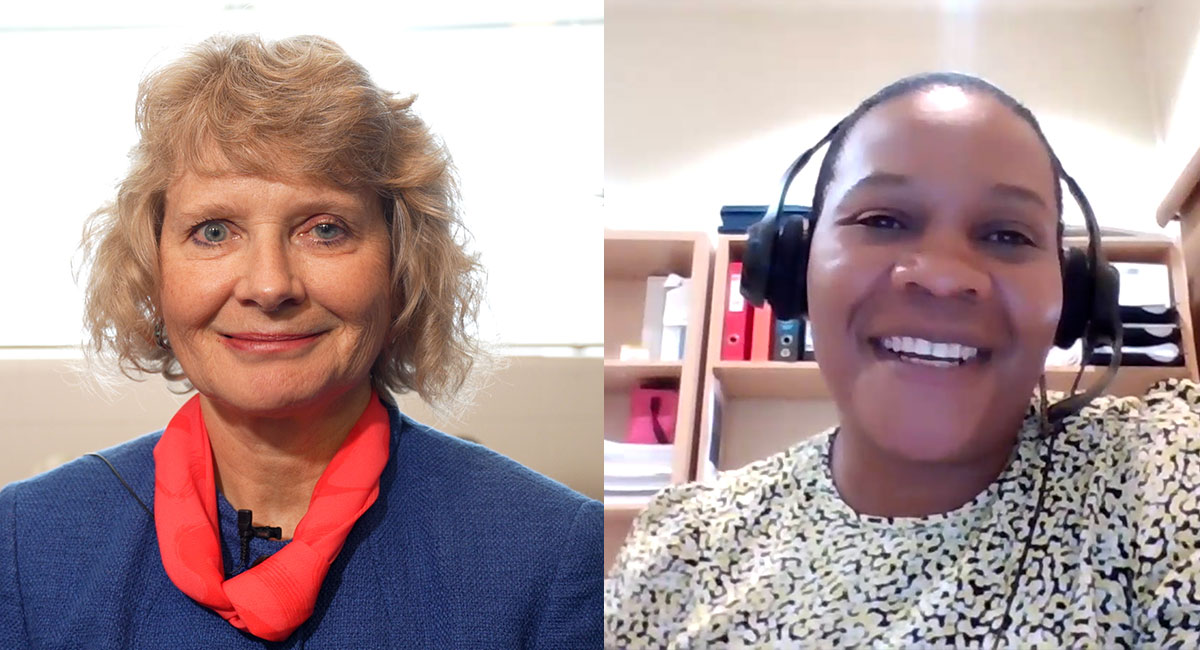
Linda Eckert (left) and Laura Muzingwani (right) discuss cervical cancer prevention and awareness.
Cervical cancer is almost entirely preventable, and yet the disease kills around 350,000 people each year. To prevent these deaths, the World Health Organization has called for a collective global effort to eliminate cervical cancer through vaccination, screening and treatment, and countries around the world have pledged to support this work.
January is Cervical Cancer Awareness month. In recognition of this, the University of Washington School of Public Health’s faculty and staff are sharing a message of hope and action for addressing cervical cancer. Watch their videos below to learn more.
Dr. Linda Eckert
Adjunct professor of Global Health in the UW School of Public Health, professor of Obstetrics and Gynecology, technical advisor to the I-TECH Namibia Cervical Cancer program
Author of “ENOUGH: Because We Can Stop Cervical Cancer”
The main cause of cervical cancer is long-lasting infection with certain types of human papillomavirus or HPV. That’s why tools to prevent and identify HPV infections are critical to eliminating cervical cancer. Eckert shares three steps the public health community can take to help with this work.
Dr. Laura Muzingwani
Lead physician at the UW International Training and Education Center for Health (I-TECH) in Namibia
Cervical cancer disproportionately impacts people who live in middle and low-income countries, accounting for 90% of the 342,000 annual deaths. To help address these health inequities, the I-TECH Namibia program focuses on cervical cancer screening services for women living with HIV. Muzingwani is the lead physician of this program. Here, Muzingwani shares what her team has learned from the program and how it can be used as a model to prevent hundreds of thousands of deaths each year from cervical cancer.